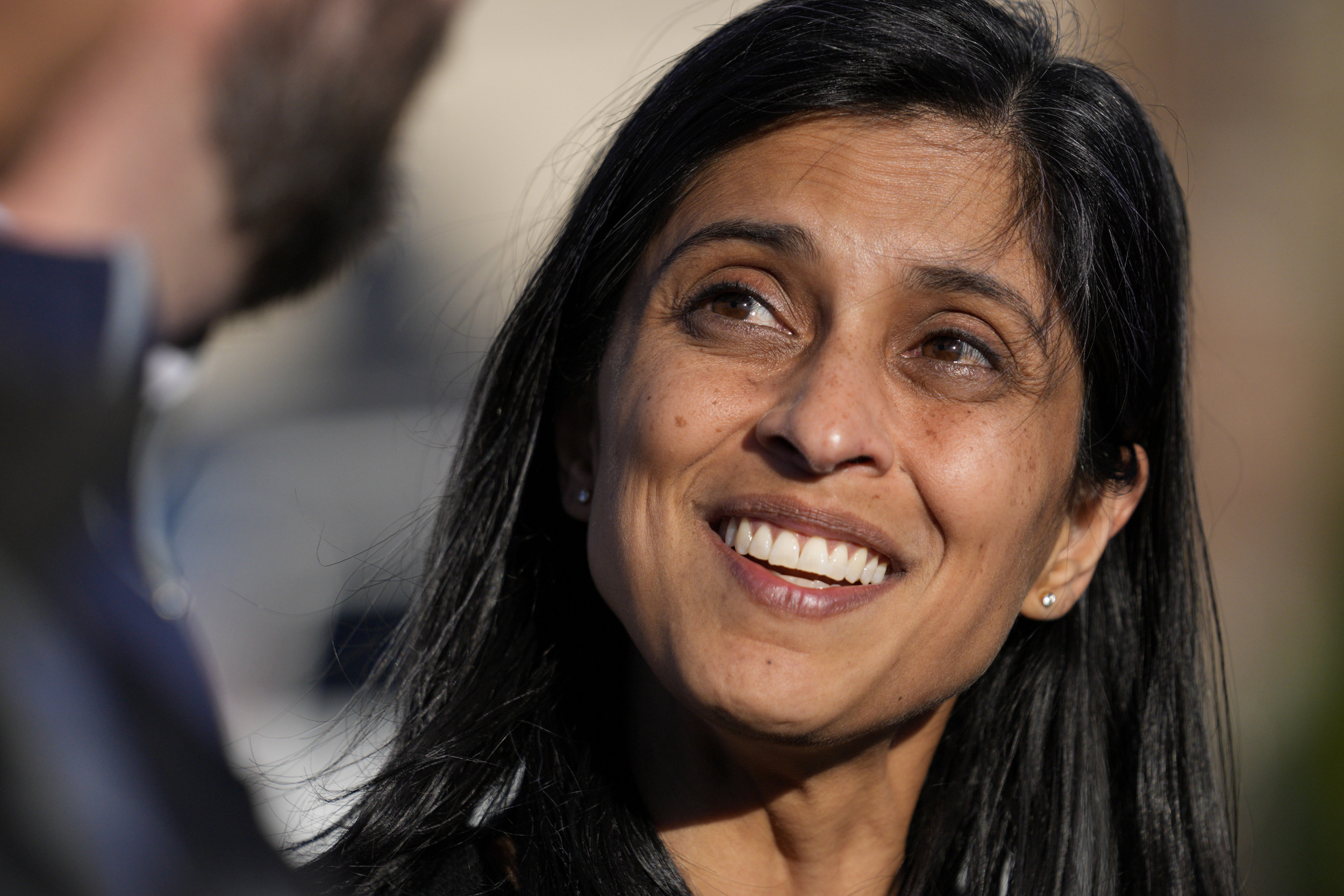The connections of Usha Vance to Supreme Court justices have sparked discussions and raised concerns within legal and political circles. As a prominent figure, Vance's relationships with these justices are under scrutiny, particularly regarding the implications they may have on the integrity of judicial proceedings. This article delves into Vance's background, her connections, and the potential ramifications of these relationships on the Supreme Court's reputation and functionality.
Understanding the dynamics of Usha Vance's associations requires a comprehensive look at her career, the nature of her connections, and the broader context of the Supreme Court's role in American governance. With the judiciary being a pillar of democracy, any perceived conflicts of interest can undermine public trust. This article aims to provide a thorough analysis, ensuring readers are informed about these critical issues.
As we explore Vance's ties to the highest court in the land, we will examine both historical precedents and current events that contextualize these concerns. By shedding light on these connections, we hope to foster a more informed dialogue about the implications of such relationships in the judicial landscape.
Table of Contents
- Biography of Usha Vance
- Connections to Supreme Court Justices
- Implications of These Connections
- Public Reaction and Concerns
- Case Studies: Notable Instances
- Historical Context of Judicial Connections
- Conclusion
- Call to Action
Biography of Usha Vance
Usha Vance, an accomplished legal professional, has made significant strides in her career. Born and raised in a small town, Vance pursued her education in law with the ambition of impacting the legal landscape. Her journey has led her to various prestigious positions, culminating in her current role that has positioned her at the intersection of law and politics.
| Data Pribadi | Detail |
|---|---|
| Nama Lengkap | Usha Vance |
| Tanggal Lahir | [Insert Date] |
| Pendidikan | [Insert Education Details] |
| Karir | [Insert Career Highlights] |
Connections to Supreme Court Justices
Vance's connections to Supreme Court justices are intricate and multifaceted. These relationships often stem from her professional engagements, networking within legal circles, and her active participation in judicial conferences and seminars. Such connections, while common in legal professions, raise questions about potential biases that could arise.
Nature of Connections
- Professional collaborations in legal cases.
- Participation in legal symposiums and discussions.
- Social events and informal gatherings.
- Shared affiliations in legal organizations.
Potential Conflicts of Interest
While networking is a vital aspect of any profession, the proximity of Vance to Supreme Court justices may lead to perceived or real conflicts of interest. The integrity of judicial decision-making is paramount, and any hints of impropriety can severely damage public trust in the judicial system.
Implications of These Connections
The implications of Usha Vance's connections to Supreme Court justices are profound. They not only affect her personal reputation but also have broader repercussions for the judicial system. Concerns about impartiality and fairness may arise, potentially influencing public opinion and the legitimacy of court decisions.
Impact on Judicial Integrity
Judicial integrity is essential for maintaining the rule of law. If Vance's connections lead to biased rulings or favoritism, it could erode the public's confidence in the Supreme Court as an impartial arbiter of justice.
Long-term Consequences
- Loss of public trust in the judicial system.
- Increased scrutiny of judicial appointments and affiliations.
- Potential reforms in judicial ethics and transparency.
Public Reaction and Concerns
The public's reaction to Vance's connections has been mixed. While some view them as a standard aspect of legal practice, others express deep concern over potential biases that may arise from such relationships. Social media and political discourse have amplified these concerns, leading to calls for greater transparency in judicial processes.
Voices of Concern
Legal experts and political analysts have voiced their apprehensions, emphasizing the need for strict ethical guidelines governing interactions between legal professionals and justices. The potential for perceived favoritism could undermine the very foundation of justice.
Public Discourse
- Debates surrounding judicial ethics.
- Calls for investigations into potential biases.
- Increased media scrutiny of judicial appointments.
Case Studies: Notable Instances
Several notable instances highlight the complexities of judicial connections. These case studies illustrate the potential ramifications of relationships between legal professionals and justices, emphasizing the need for vigilance in safeguarding judicial integrity.
Case Study 1: [Insert Relevant Case]
[Provide details about a specific case that illustrates the connection and its implications.]
Case Study 2: [Insert Relevant Case]
[Provide details about another specific case that showcases the concerns surrounding judicial connections.]
Historical Context of Judicial Connections
The historical context of connections between legal professionals and justices provides insight into the longstanding practices that have shaped the judiciary. Understanding past occurrences can illuminate current issues and help formulate guidelines for the future.
Previous Controversies
Throughout history, various controversies have arisen from connections between lawyers and judges, underscoring the need for ongoing vigilance and reform in judicial ethics.
Lessons Learned
- The importance of transparency in judicial processes.
- Establishing clear ethical guidelines for legal professionals.
- Encouraging public engagement in judicial matters.
Conclusion
Usha Vance's connections to Supreme Court justices raise valid concerns that merit thorough examination. As the judiciary plays a critical role in upholding democracy, maintaining its integrity is paramount. The potential implications of these relationships can affect public trust and judicial legitimacy.
Call to Action
We encourage readers to engage in this important discussion. Share your thoughts in the comments below, and consider exploring further articles on judicial integrity and ethics. Your voice matters in shaping the future of our legal system.


